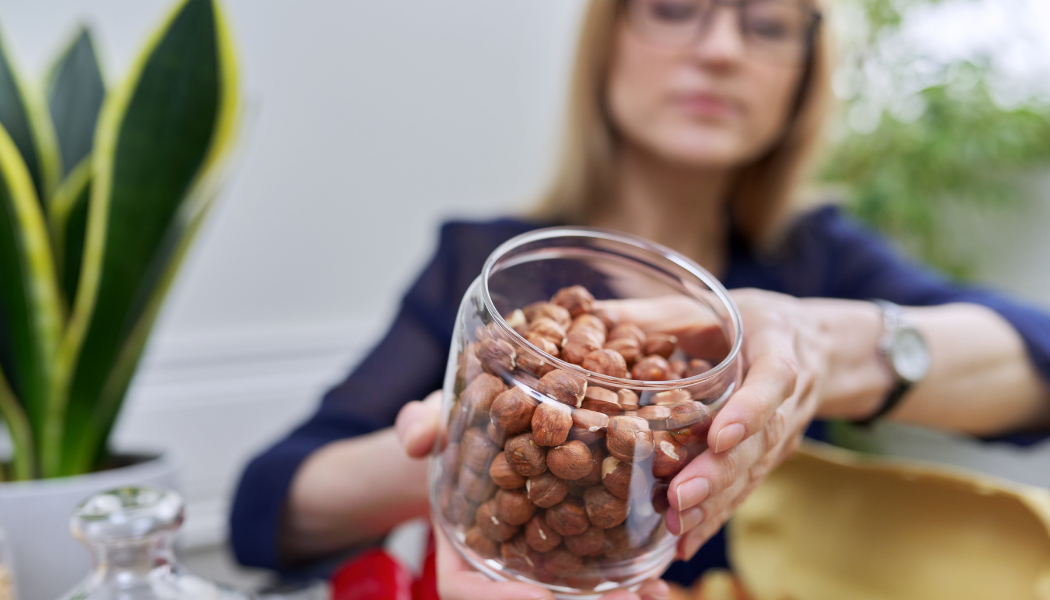Nut-Consumption and Breast Cancer Survival
Breast cancer is the most common type of cancer among women in the world and, although less common, it can also affect men. An estimated 284,200 new breast cancer cases will be diagnosed in the United States this year, and tragically an estimated 44,130 deaths will occur. While screening and treatment options have become more advanced, it is still important for women to proactively reduce breast cancer risk factors. Thankfully, a team of renowned researchers recently discovered that breast cancer prevention could be as simple as eating a handful of trail mix.
Connecting the Dots
Researchers from Vanderbilt University Medical Center and the Shanghai Municipal Center of Disease Control and Prevention concluded that nut consumption appeared to be associated with higher survival rates among long-term breast cancer survivors. The researchers suggest emphasizing this finding as a modifiable lifestyle factor in survivor guidelines.
The team came to this conclusion after analyzing associations of peanut and tree nut consumption with overall survival (OS) and disease-free survival (DFS) among 3,449 long-term breast cancer survivors aged 20 to 75 years who participated in the Shanghai Breast Cancer Survival Study. Of these participants, 3,148 women reported nut consumption, and 301 women reported no nut consumption.
The researchers obtained a detailed dietary assessment, which the women completed at the 5-year post-diagnosis follow-up interview between October 2007 and October 2011. The team converted the consumption of nuts into grams per week and calculated total nut consumption as the sum of intake from peanuts, walnuts, and other nuts.
Here’s what they found:
- Participants who consumed nuts regularly had higher rates of OS and DFS (by 4.7% and 7.9%, respectively) 10 years after diagnosis.
- There were positive associations of nut consumption with OS and DFS after a dose-response pattern for participants with greater-than-median (17.32 g per week) nut intake compared with non-consumers.
The team explained that nuts are a common nutrient-dense food seen in healthy diets. As such, several studies have found nuts to be associated with reduced mortality, particularly mortality due to cardiovascular diseases, in the general population. Previously we knew little on whether the health benefits of nut intake extended to breast cancer survivors, particularly regarding the DFS. The goal of this study was to address this knowledge gap.
Which nuts should you be eating?
While the study mentions peanuts and walnuts by name, there are a variety of nuts that can offer cancer-fighting benefits. Here’s what experts at National Foundation for Cancer Research (NFCR) have to say:
- Brazil nuts contain the richest source of natural selenium, a nutrient that may play a critical role in reducing the risk of certain cancers
- Walnuts have pedunculagin, a tannin that the body metabolizes into urolithins. Urolithins are compounds that bind to estrogen receptors and may play a role in preventing breast cancer.
Related NFCR-Supported Research
NFCR-funded researchers also point out that while eating cancer-fighting foods is a great step, there are other essential factors to include to prevent various cancers – including breast cancer.
Exercise and regular screening (where applicable) are vital in preventing and treating cancer. Recently, NFCR-funded scientist Dr. Rakesh Jain and his team at Massachusetts General Hospital and Harvard Medical School found that exercise training may slow tumor growth and improve outcomes for females with breast cancer – especially those treated with immunotherapy drugs. Learn more about Dr. Jain’s research here, or support innovative and life-saving research findings like the work of Dr. Jain with NFCR here.
Additional Reads You May Enjoy:
Genetic Predisposition vs. Healthy Living: Which Impacts Cancer Risk More?
Vitamin-D Rich Foods & Colorectal Cancer Prevention
Potatoes vs. Sweet Potatoes: Root Vegetables for Cancer Prevention
Stay connected with the cancer community! Receive NFCR’s monthly e-newsletter and blogs featuring stories of inspiration, support resources, cancer prevention tips, and more. Sign up here.












